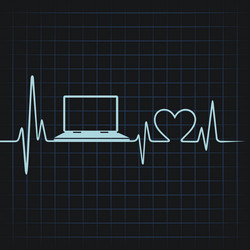Trending science: Big data analytics to revolutionise health provision
We know that big data – large amounts of data produced very quickly by a high number of diverse sources – can be highly valuable if it is processed and analysed correctly. And one of the areas where you and I will feel a direct impact is expected to be healthcare. Under a data-driven economy, our doctors will be equipped with information from a range of sources to help treat us more quickly. Meanwhile, the analysis of large clinical datasets will result in the optimisation of the clinical and cost effectiveness of new drugs and treatments. There is no shortage of data when it comes to health – in fact, we are piling up health information at record rates. However it’s not necessarily ordered and therefore not necessarily useful. According to IBM, 80 % of health data is unstructured and stored in hundreds of forms such as lab results, images and medical transcripts. The sheer size of this data mountain demands powerful big data analytics systems capable of crunching it, as well as profound learning intelligence to generate useful insights. That’s why, just last week, tech giants Apple and IBM announced that they have teamed up to use big data analytics in the field of digital health. This foray into the health sector is nothing new for IBM which is already running a global health analytics cloud, Watson Health. However, according to Computerworld.com, the deal with Apple enables even more accurate data collection. The platform will now store health data using iOS apps like Apple’s ResearchKit and HealthKit. IBM says that it will de-identify and store health data in ‘a secure, scalable cloud system that enables researchers to access and share data in an open ecosystem environment, as well as have access to IBM's data-mining and predictive analytics capabilities’. According to the Inquirer, IBM will also work with Johnson & Johnson and Medtronic with a view to optimising medical devices to collect the data to be crunched by the company’s supercomputers. Part of the end goal will be to analyse and use the terabytes of data being collected every day from personal fitness devices and mobiles. The Inquirer comments, ‘It is hoped that mining this data, on an opt-in basis, will allow Watson and ResearchKit to provide accelerated solutions to health problems by spotting patterns in the data, perhaps when compared with particular age group or lifestyle demographics.’ Do policy makers agree that big data will hugely improve medical care? Pēteris Zilgalvis, Head of Unit ICT for Health and Wellbeing in the European Commission, said the following to Himss Insights Volume 3: ‘Big data has the potential to play an important role in the transformation of medical care. Analysing disparate and highly dynamic data will benefit different fields like epidemiological research or early detection and prevention of diseases. By moving from a reporting approach (what has happened?) to a predictive approach (what will happen?), big data is creating a new knowledge era in the world of medical care.’
Countries
Belgium



